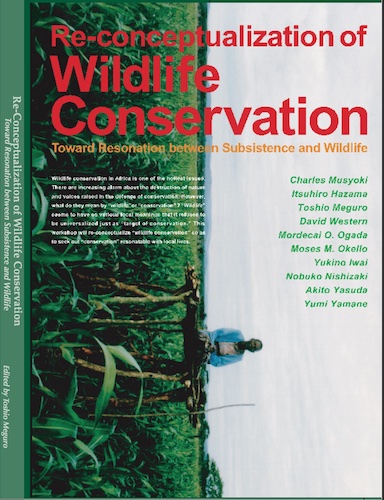Re-conceptualization of Wildlife Conservation: Toward Resonation between Subsistence and Wildlife
 |
In the 1960s and 1970s, some researchers working in Africa realized the necessity for including human activities within the discussion of wildlife conservation. Since the 1980s, the roles of communities for biodiversity conservation have been given serious consideration globally (Western, 2003). There is a movement toward bottom-up and decentralization approaches. They differ from the “fortress conservation”, which is characterized by its top-down and centre-driven strategy (Berkes, 2004; Hulme and Murphree, 2001a; Western and Wright, 1994). Sometimes, this change is described as a “paradigm shift” (Berkes, 2004; Brown, 2002). Although they share the same tendency explained as above, the fact is that they have different or opposite opinions with regard to some issues. It is important to understand the difference among such new approaches, or Community Approaches. Without it, one word may convey different meanings to different approaches. At beginning, this chapter conducts minute examination of new approaches so as to check that difference. After that, it is discussed in what way we should reconceptualize wildlife conservation. This chapter take up the following four approaches, which are often reviewed as a “new paradigm” in wildlife conservation; Integrated Conservation and Development Projects (ICDPs), Community-based Conservation (CBC), Community Conservation (CC) and Community-based Natural Resources Management (CBNRM).

